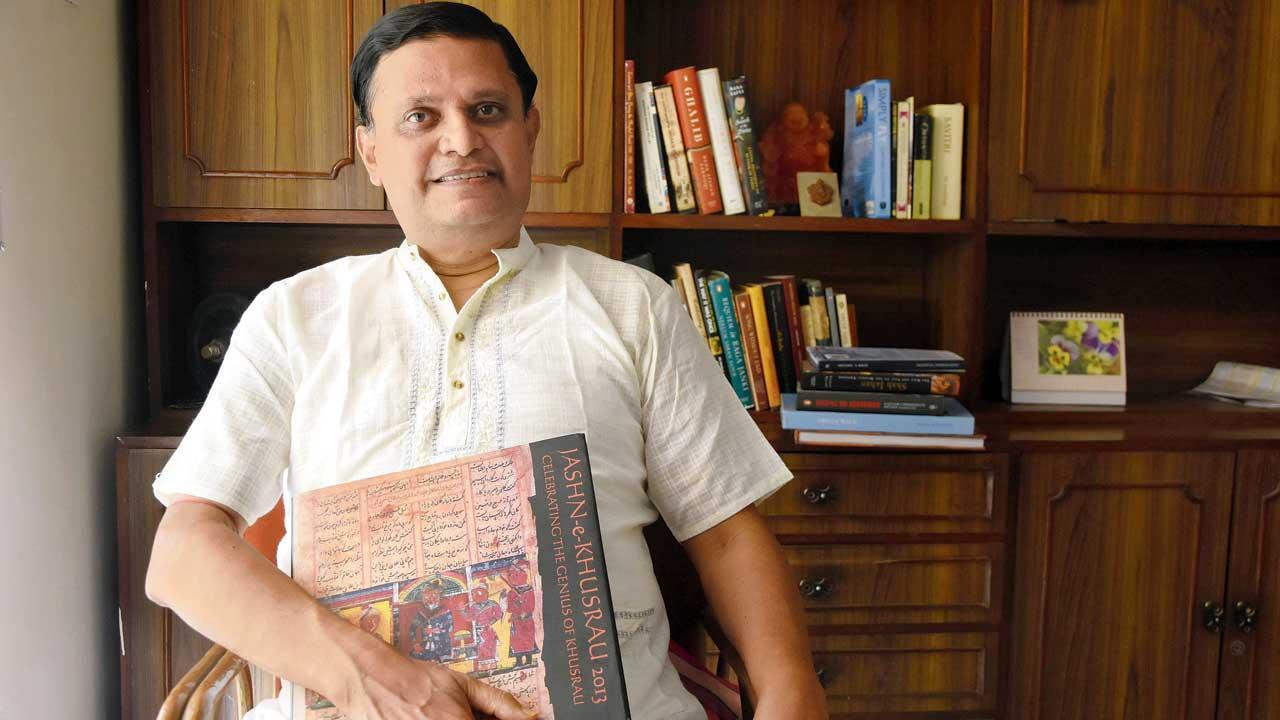Delhi’s ex joint commissioner of police rekindles his fascination for qawali in the hope of spreading word about the late mystic poet

Retired police officer Shivaji Sinha will give a talk on Amir Khusrau and his qawalis, at the Museum of Goa, in Pilerne today, where he will discuss the spiritual and social significance of different forms of qawali and their role in building India’s syncretic culture
As a child, Shivaji Sinha was enamoured by the qawals. His first brush with them was at age 10 in Allahabad, today Prayagraj, where his father, an Army doctor, was posted. “We lived in the Cantonment and right across our home, there was a Sufi saint’s dargah. During his death anniversary, which is called the Urs, there used to be a celebration because followers of Sufism don’t see death as a moment of sadness, but a joyous union with God,” Sinha tells, “At the time of the Urs, a qawali programme was organised at the dargah.” Sinha remembers making a dash and staying there late into the night. “My mother thought I was too young for this, but I was blown away by the songs and sounds, even though I didn’t understand the words.”
ADVERTISEMENT
Sinha, a former intelligence officer, who retired as joint commissioner of police, Delhi, in 2020, and is currently based out of Goa where he works as Chief Security Officer, at the new Mopa airport, is also a passionate theatre and culture enthusiast. This Sunday, the former cop will be conducting a talk titled, In the Bazaar of Love: Amir Khusrau and his Qawalis, at the Museum of Goa, in Pilerne, where he hopes to discuss the spiritual and social significance of different forms of qawali and how they helped build India’s syncretic culture, and the role of Hazrat Amir Khusrau particularly in the development of qawali music in India.
“Although I was raised in an Army home, my parents didn’t confine themselves to the cantonment. They were very passionate about the arts,” he recalls. His father, he says, would participate in a host of cultural activities, including the annual Durga Pujo celebrations, and also dabbled in theatre. His mother was a singer. “I also started performing along with them.”
While donning the uniform was always at the back of Sinha’s mind, the theatrewallahs at his university in Allahabad fanned his creative spirit. “I came in touch with a professor of English, Sachin Tiwari, who had studied theatre at the Royal Academy of Dramatic Art in London. I started doing a lot of theatre with him, and our group was called Campus Theatre,” he remembers. This was between 1978 and 1986, just before Sinha left university. While some of his friends joined Delhi’s National School of Drama, Sinha says that his middle class upbringing compelled him to pursue a more serious career. “As an arts student, the options were few, so I sat for the civil services examination,” he laughs.
Sinha’s first posting as police officer was in Puducherry. While work took most of his time, he remembers acting and directing in a couple of plays that were staged there. “But after I climbed up the ranks, it became difficult to find time for my passion,” he confesses. It was his posting in Delhi that proved to be a game-changer. “It’s here that my interest in qawali grew,” he says. Sometime in 2007, he came across a qawal duo from Pakistan, Farid Ayaz and Abu Muhammad. “Every time, they came to Delhi to perform, I’d go and attend their show.” A regular at filmmaker Muzaffar Ali’s music festival Jahan-e-Khusrau, Sinha started taking a deeper interest in qawali. He was most fascinated by the mystic poet-singer Amir Khusrau (1253–1325), who wrote in Hindawi, and is often known as the father of qawali. One of Khusrau’s disciples Samat bin Ibrahim continued singing his qawalis, and his family carried on the legacy. Ustad Tanras Khan, a court musician to the last Mughal emperor Bahadur Shah Zafar II, and a luminary of the Delhi Gharana, was a descendant of this group of qawals. “They called themselves ‘qawal bache’,” says Sinha. While Tanras Khan moved to Hyderabad and honed qawals there, Sinha says he came in contact with his descendant, Ustad Meraj Ahmed Nizami in Delhi. “Every Thursday, there used to be qawali at the Hazrat Nizamuddin Aulia Dargah. I met Ustad Meraj Ahmed there, and he immediately took a liking to me.” Ustad Meraj was also a relative of singers Ayaz and Muhammad. It was from the late qawali singer, that Sinha learnt more about Khusrau’s life and legacy and the tradition of qawali. “I even organised his performance at the Sri Aurobindo Ashram in Puducherry, and Khuda Bakhsh Oriental Public Library in Patna, when I was posted there,” he says.
After his retirement, Sinha says he was keen on reviving the qawali scene in Delhi’s Nizamuddin basti after the Aga Khan Trust began an urban renewal initiative there. “As part of the initiative, they were also leading a cultural revival programme, and I wanted to be part of it,” he says. Having retired during the pandemic when the arts and cultural scene took a hit, boredom set in, and he decided to look for a job. Sinha took on the new role at the Mopa airport in Goa in June of last year, but the plan is to continue enlightening people about the musical tradition of our past.
Having acted in more than 25 plays, and directed 15 of them, he also wishes to engage in theatre, more deeply. “One of my favourites is Samuel Beckett’s Waiting for Godot. I performed it thrice, and played the character Pozzo. There isn’t a better play ever written.”
Also Read: Here is an exclusive walkthrough of art gallery Tarq at its new Fort address
 Subscribe today by clicking the link and stay updated with the latest news!" Click here!
Subscribe today by clicking the link and stay updated with the latest news!" Click here!







